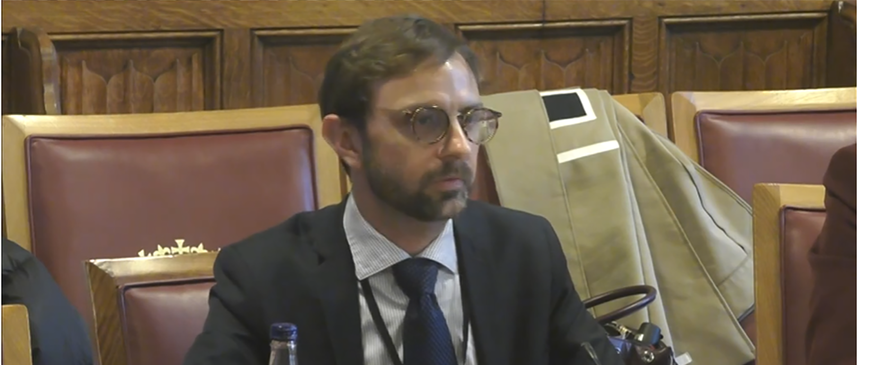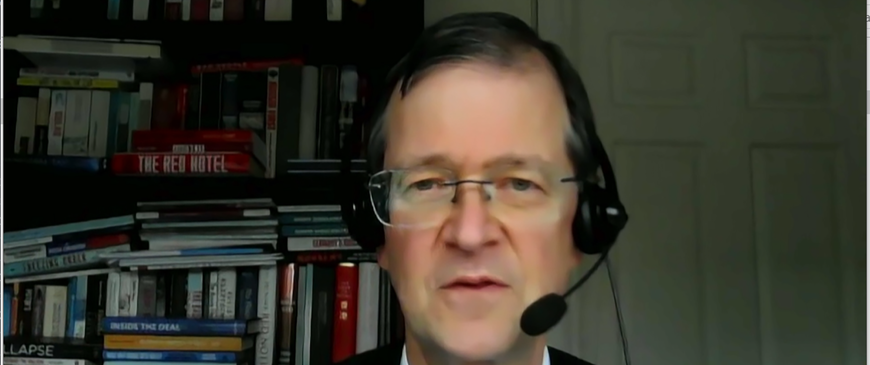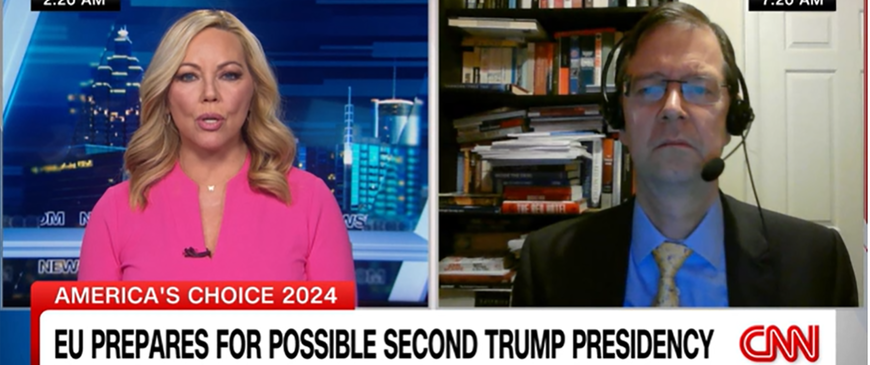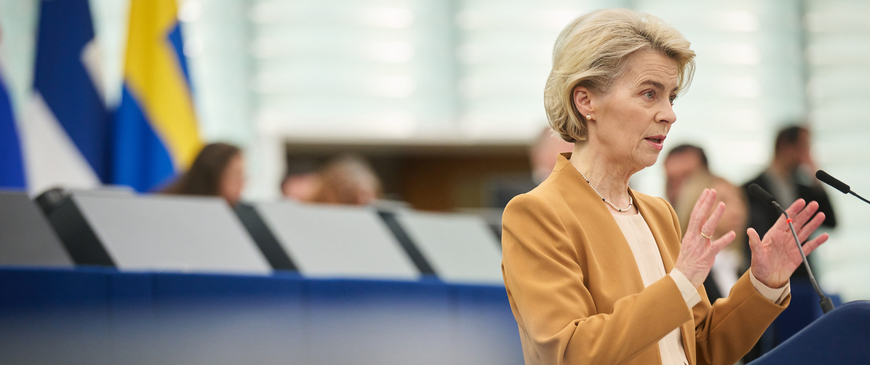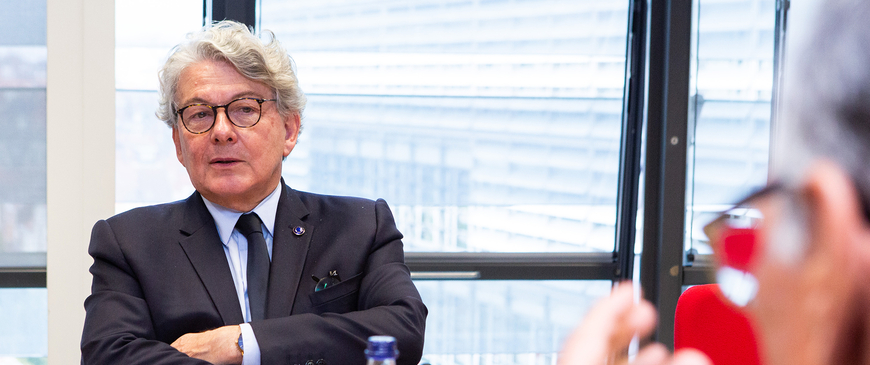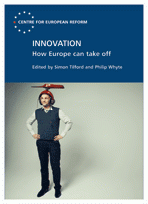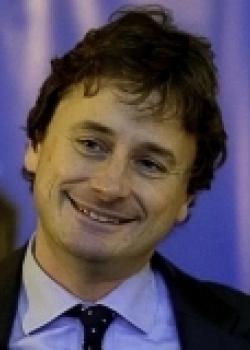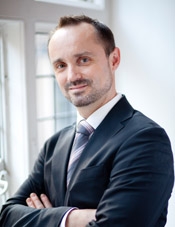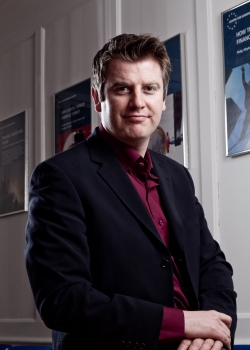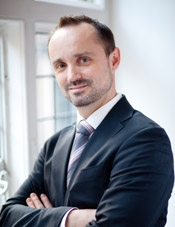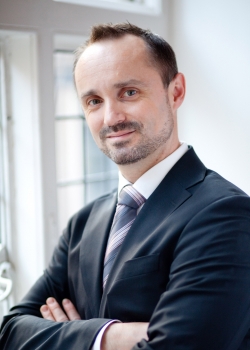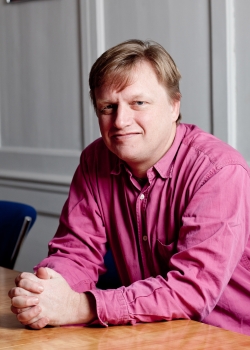Press
Migration: To open the borders or not?
08 September 2011
European Voice
Hugo Brady, who follows EU migration policy for the CER, a London-based think-tank, does not believe that calls for a more rational debate are necessarily realistic. "It might be intellectually coherent to say that we need 50 million immigrants to keep Europe's economic growth going over the next decades," he says. "But Europe does not have the social and political capacity to deal with massive immigration."
Europe steers into a zone of uncertainty
08 September 2011
The New York Times
Inaction to fix the banking sector also troubles markets, said Simon Tilford, an economist with the Centre for European Reform in London, because it "highlights a willful refusal to recognise the core of the crisis, which is the collapse of economic activity and low economic growth." Without growth, he said, there is no easy way forward; growth cannot be produced by austerity or by structural reforms, even if those may help later.
Book review - Innovation in Europe lacks 'creative destruction': CER report states
08 September 2011
EurActiv
European innovation policies lack the "creative destruction" widely accepted in the US, raising barriers for businesses seeking to find new ideas and applications, according to a report compiled by the Centre for European Reform, a British think-tank.
In the report, entitled 'Innovation: How Europe can take off',
...
In the report, entitled 'Innovation: How Europe can take off',
...
German court rejects challenges to euro bailouts
07 September 2011
The New York Times
"The court ruling removes a substantive obstacle, but there’s no doubt that the situation still looks pretty grave," said Simon Tilford, chief economist at the Centre for European Reform in London. The underlying problems of heavily indebted states and weak, undercapitalised banks still have to be addressed to find a long-term solution, Mr. Tilford said.
Europe faces plague of low growth and high debt
06 September 2011
The New York Times
"A lot of countries are going to take a permanent hit to their trend rate of growth," said Philip Whyte, a senior research fellow at the Centre for European Reform, a research group in London. "This is not an ordinary recession, and so we’re not going to see countries bouncing back to precrisis rates of growth." ..."They’re going through some truly horrible times," said Mr Whyte of the CER. "I’m very worried about the whole southern European fringe, not just on an 18-month to two-year view but looking out a decade or longer."
Libya's dark lesson for NATO
04 September 2011
The New York Times
Some defence experts, like Tomas Valasek of the London-based Centre for European Reform, suggest that Washington's diplomacy worked, in that during the Libyan conflict "the allies established a new division of labour for NATO operations on Europe's borders, which should be encouraged."
New Conservatism in Europe impedes two of its nations
03 September 2011
The New York Times
"Some EU countries are saying, Let us learn from the lesson of Greece," said Hugo Brady, a researcher at the Centre for European Reform. "‘Let us be conservative with Romania and Bulgaria."
Eurozone nearing Greek collateral compromise
01 September 2011
Reuters
Katinka Barysch of the Centre for European Reform in London said the Finnish attitude was harmful for Europe. "That is an attitude that if it materialised in Germany would be very dangerous," Barysch said. "The only good solution I can imagine is to get rid of this. If the Greeks were able to give collateral for all the bonds they issue or for the money we lend them, they wouldn't need us anyway."
Bad start for EU’s defence procurement directive
31 August 2011
Defence News
“If member-states finish transposition in the next few months, then it’s not such a problem, but if they take a year or more, then it causes a problem,” said Clara O’Donnell, a researcher at the Centre for European Reform in London. O’Donnell said she expects member states to exploit loopholes in the directive, such as a clause allowing them to reserve contracts for domestic firms by citing national security interests.
Why the EU and Turkey need to co-ordinate their foreign policies
31 August 2011
Carnegie
The idea of an EU-Turkey foreign policy dialogue has been catching on in European and Turkish policy circles over the last couple of years.
[Racism, xenophobia, rise of populist movements] Have mainstream political parties failed?
28 August 2011
Today’s Zaman
Charles Grant, director of the London-based Centre for European Reform, recently wrote about "Marine Le Pen and the rise of populism" In his analysis he quoted the leader of France’s Front National as having said: "Left and right don’t mean anything anymore – both left and right are for the EU, the euro, free trade and immigration. … For 30 years, left and right have been the same; the real fracture is now between those who support globalisation and nationalists."
Finland could upend fragile consensus on Greece
28 August 2011
New York Times
"In countries like Finland, the opposition to what are described as bailouts is huge," said Philip Whyte, senior research fellow at the Centre for European Reform in London. "Governments are politically constrained."
Libya shows cracks in Western military co-operation
25 August 2011
Reuters
"This is the first time that the United States said, essentially, 'over to you, Europe'," said Tomas Valasek, a defence analyst at the Centre for European Reform. "The Americans have made it clear for a long time that they want the Europeans to lead in operations when they take place near Europe. In Libya, for the first time, they acted upon it." ..."We should not count on this model changing any time soon," Valasek said. "I don't see on what grounds can Europe be expecting the Americans to be leading wars of discretion on Europe's territory."
Europeans retreat on defence spending
24 August 2011
The Wall Street Journal
Tomas Valasek of the Centre for European Reform, a think tank in London, says opportunities exist for smarter defence spending. Most spending is not for military operations, he says, but for things like training, education and procurement. Four-fifths of European equipment budgets are spent on products from domestic manufacturers, which often don't offer the best value. "There's a shocking contrast between the way we fight together and the way we build our forces in splendid isolation from each other," he says.
What does Europe's austerity movement mean for NATO?
24 August 2011
The Christian Science Monitor
"Americans may feel rightful anger in Europeans not doing their share," says Tomas Valasek, a defence and security specialist with the Centre for European Reform in London. "But Europe showed a newfound political courage in Libya. The commentariat, and the Atlanticists in Washington, who used to be NATO defenders, have missed the main story in Libya." ..."What worries me is that the NATO-bashing and anger at Europe in Washington, combined with a new generation in the US, will actually hasten the end of the alliance," says Mr Valasek.
Slowdown could make Germany rethink euro crisis stance
24 August 2011
Reuters
Germans feel poorer and more troubled in their own economy it will make them less generous in providing aid, in making full use of the EFSF, in considering things like euro bonds. They will have more worries, be more insecure," said Charles Grant, director of the Centre for European Reform in London.
Merkel never holding hands with Sarkozy betrays Europe’s crisis
22 August 2011
Bloomberg
"For much of the history of the European Union, the alliance between Germany and France was the main motor for integration," Katinka Barysch, deputy director of the London-based Centre for European Reform, said in a study published last year. "The euro crisis will make it harder to paper over Germany and France’s differing interests and ideas about the future of the EU."
ECB austerity drive raises fears for democratic accountability in Europe
22 August 2011
The Guardian
Philip White, of the London-based Centre for European Reform, explains that EU leaders are torn between meeting the demands of the markets and upholding democratic norms: "The stage we are at in the eurozone crisis presents politicians with a deeply uncomfortable position: trying to convince markets that they are taking the necessary action to place economies on a more sustainable path and that the euro is here to stay while on the other hand to persuade their electorates that they are respecting democratic traditions." "If you look at the debt and deficit numbe
Europe: The seven-year hitch
21 August 2011
Financial Times
"The euro crisis has left many people in the richer EU countries opposed to any kind of transfers to poorer countries," writes Stephen Tindale, an associate fellow at the Centre for European Reform, in a recent review of the budget. In the minds of many Europeans, Mr Tindale argues, development funds to help poorer regions and national economic bail-outs had become one and the same.
In crisis, reminders of disputes in euro's founding
17 August 2011
The New York Times
Simon Tilford, chief economist at the Centre for European Reform (CER) in London, called it "a positive step that this debate is taking place in Germany and that there is an acceptance that pooling fiscal authority is a necessary precondition of a lasting conclusion of the crisis." "But there is a risk," he added pointedly, “that in order to sell this to domestic opinion, Germany will extract concessions that will render the whole thing unworkable." ...Europe still hasn’t resolved the fundamental question it skirted back in 1996 at Dublin Castle: Is the euro mor

